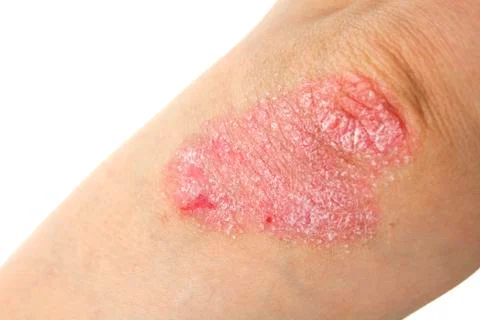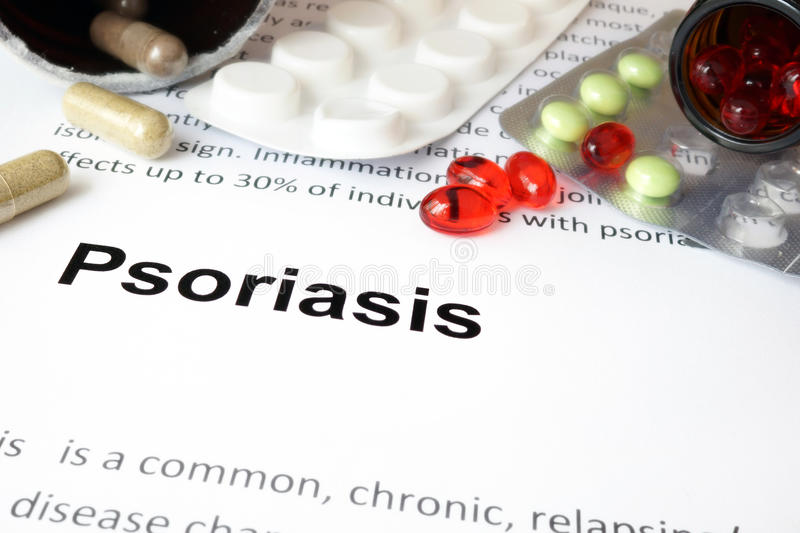Psoriasis is a chronic autoimmune disease easily identified by skin lesions and the overgrowth of keratinocytes. Dermatologists classify it as inflammatory keratosis and infection, causing inflammation and keratosis that thickens the skin. Additionally, as the affected area grows red, the horny layer becomes thick and complex. The surface becomes dandruff-like scales and scabs, typically a silvery-white scab. It accompanies severe itch, easily irritating areas, especially the head and back, hips to buttocks, elbows, knees, and lower legs. Mostly, in this case, the boundary is clear. Rarely, symptoms may appear on the nails as well.

In addition, the number of cases of psoriasis is increasing worldwide. However, the details of the etiology have not been clarified, although genetic factors have been suggested. Earlier studies have revealed that gut microbiota dysbiosis is associated with skin disease in humans. Furthermore, it has been reported that the intestinal flora of psoriasis patients is less diverse than that of healthy subjects, and its association with the onset is considered.
On the other hand, fucoidan, a sulfated polysaccharide obtained from brown algae, has an antitumor effect, apoptosis-inducing effect, antiallergic activity, and immunomodulatory activity. It has also been reported to improve intestinal conditions as a dietary fiber of prebiotic effects.
In this blog, I am going to share the effects of fucoidan on psoriasis from intestinal flora and immunoprotective impact through the research.
According to the study “Improvement of Psoriasis by Alteration of the Gut Environment by Oral Administration of Fucoidan from Cladosiphon Okamuranus” by Masanobu Takahashi et al., used a psoriasis model mouse with a genetic alteration, after a week of custom breeding, the control diet with crystalline cellulose, or the test diet, Okinawa Mozuku-derived fucoidan, was ingested for nine weeks. For comparison, wild-type BALB / e mice were fed the same diet and bred for 31 days. First, we conducted a scratch test on the face of the mouse. The study compares and measures the number of times the face is scratched within a certain period between the fucoidan intake group and the control group in psoriasis model mice. As a result, facial scratching behavior decreased significantly in the fucoidan group from 7 days to 56 days (Fig. 1). In addition, in the evaluation using PASI, an index for evaluating the severity of eczema, the fucoidan intake group showed a significantly lower score than the control group from 21 days to 63 days later. These results suggest that fucoidan significantly improved psoriasis symptoms in mice.
Following, they examined the intestinal flora using a next-generation genomic sequencer. Analysis at the phylum level revealed that the fucoidan-fed group had a relative decrease in the Famicutis species and increased Bacteroides phylum compared to the control group. Moreover, the S24-7 family, which is involved in intestinal inflammation, showed a decreasing tendency among the species Bacteroides. The number of Clostridium families had also decreased. The family is associated with the maturation of Th17 cells involved in inflammation in patients with autoimmune diseases. Subsequently, the amount of mucin in feces was measured by the fluorescence method. Mucin is significantly involved in the protection of mucosal cells and gastrointestinal function. As a result, it was observed that mucin production in the fucoidan intake group became active after 21, 49, and 63 days in the psoriasis model mouse. Therefore, it is suggested that fucoidan promotes mucin production and improves the intestinal environment.
Finally, IgA in feces and cecum was measured by ELISA. IgA plays an essential role in intestinal immunity and maintains the balance of the intestinal flora. No IgA was detected in the feces. In the cecum, psoriasis model mice were found to have significantly higher IgA levels in the fucoidan-ingested group (Fig. 2). This study suggests that fucoidan works on the gut microbiota to improve the symptoms of psoriasis. Further elucidation of the mechanism of action is expected.

Fucoidan’s itching reduction effect: triangle shape is the control group and round shape in the graph is the fucoidan administration g

